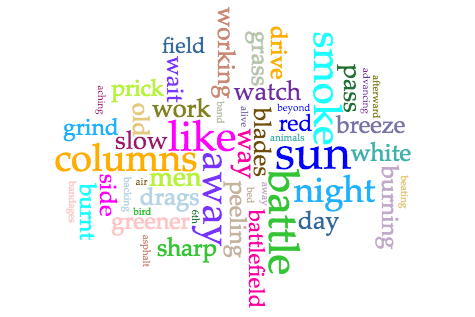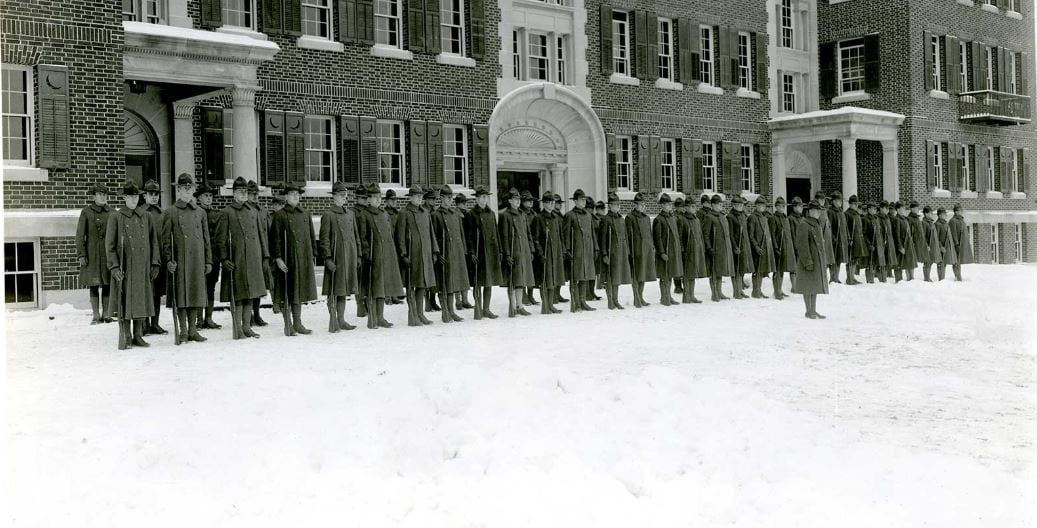Text Analysis
The second smallest genre of documents are the poems. These poems are titled The Battlefield by A.E. Harris and Poems of the War – “K.P.” Kitchen Police and The Two Columns by Laurence E. Crooks, E Co., 6th U.S. Engineers.
These poems use figurative language and imagery to illustrate the more mundane aspects of life abroad – washing heaps of dirty dishes and peeling an endless supply of potatoes to name a few – an often overlooked, yet integral position in a military base.
These poems also illustrate the varied landscapes which are both familiar to the home audience and strikingly different like the “smoky, sun-dazed sky” as described in Crooks’ The Two Columns.
The results of the text analysis were especially telling of this genre of text. With a vocabulary density of 61.2% and 21.0 average words per sentence – the most frequently used words are battle (4); sun (4); columns (3); night (3); smoke (3). These words all evoke a sensory response – primarily visual – that is characteristic of poetry’s creative focus.

Topic Modeling
For the collection of poems, two of the three topics were centered around wildlife and natural imagery. The texts for these topics also contained many uses of figurative language. One subtle difference between topic two and topic three is the type of natural imagery that is discussed. Topic two often contains language about wildlife while topic three is more centered around landscapes and plant life. This difference is revealed by the relevant sentences accompanying each topic for context.
Performing text analysis on poetry is an interesting undertaking as the algorithm that drives the results is often at odds with human interpretation. The tool simply wishes to identify word frequency and develop a topic based on the probability of certain words appearing together. For example it is natural for animals, porcupines, and buzzard to be grouped together – however the reader may understand the phrase prick like spines of porcupines to not necessarily be about animals – but a creative way to describe the oppressive nature of the sentence’s subject – the speaker’s thoughts.


You must be logged in to post a comment.